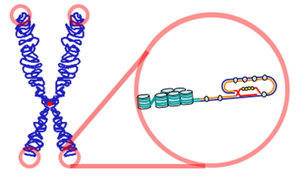THE 7 NEUROCHEMICALS OF HAPPINESS
1. Endocannabinoids: “The Bliss Molecule”Endocannabinoids
are self-produced cannabis that work on the CB-1 and CB-2 receptors of
the cannabinoid system. Anandamide (from the Sanskrit “Ananda” meaning
Bliss) is the most well known endocannabinoid.
2. Dopamine: “The Reward Molecule”Dopamine
is responsible for reward-driven behavior and pleasure seeking. Every
type of reward seeking behavior that has been studied increases the
level of dopamine transmission in the brain. If you want to get a hit of
dopamine, set a goal and achieve it.
3. Oxytocin: “The Bonding Molecule”Oxytocin
is a hormone directly linked to human bonding and increasing trust and
loyalty. In some studies, high levels of oxytocin have been correlated
with romantic attachment.
4. Endorphin: “The Pain-Killing Molecule”The
name Endorphin translates into “self-produced morphine." Endorphins
resemble opiates in their chemical structure and have analgesic
properties. Endorphins are produced by the pituitary gland and the
hypothalamus during strenuous physical exertion, sexual intercourse and
orgasm. Make these pursuits a part of your regular life to keep the
endorphins pumping.
5. GABA: “The Anti-Anxiety Molecule”GABA
is an inhibitory molecule that slows down the firing of neurons and
creates a sense of calmness. You can increase GABA naturally by
practicing yoga, meditation or “The Relaxation Response.”
Benzodiazepines (Such as Valium and Xanax) are sedatives that work as
anti-anxiety medication by increasing GABA. These drugs have many side
effects and risks of dependency but are still widely prescribed.
6. Serotonin: “The Confidence Molecule”Serotonin
plays so many different roles in our bodies that it is really tough to
tag it. For the sake of practical application I call it “The Confidence
Molecule.” Ultimately the link between higher serotonin and a lack of
rejection sensitivity allows people to put themselves in situations that
will bolster self-esteem, increase feelings of worthiness and create a
sense of belonging. To increase serotonin, challenge yourself regularly
and pursue things that reinforce a sense of purpose, meaning and
accomplishment.
7. Adrenaline: “The Energy Molecule”A
surge of adrenaline makes you feel very alive. It can be an antidote
for boredom, malaise and stagnation. Taking risks, and doing scary
things that force you out of your comfort zone is key to maximimzing
your human potential.
Source: Christopher Bergland, The
Athlete's Way The Neurochemicals of Happiness, 7 brain molecules that
make you feel great. Nov 29, 2012, Psychology Today
► Authentic-Happiness.com, the #1 free global platform to shape your life
► Check your Happiness Score, get your Life Satisfaction report: free, no registration, instant feedback.















